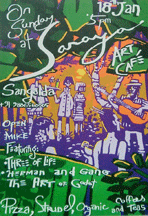Mangalore was named after the local Hindu deity Mangaladevi, the presiding deity of the Mangaladevi temple.[7][8] According to local legend, Matsyendranath, the founder of the Nath tradition, arrived in the area with a princess from Kerala named Premaladevi. Having converted Premaladevi to the Nath sect, Matsyendranath renamed her Mangaladevi. After her death, the Mangaladevi temple was consecrated in her honour at Bolar in Mangalore.[9] The city got its name from the Mangaladevi temple.[10]
One of the earliest references to the city's name was made in 715 CE by the Pandyan King Chettian, who called the city Managalapuram.[11] The 11th-century Arabian traveler Ibn Battuta referred to Mangalore as Manjarur in his chronicles.[12] In Kannada, the city is called Mangaluru, a reference to Mangaladevi (the suffix uru means town or city in Kannada).[9] During the British occupation in 1799, Mangalore (anglicized from Mangaluru), stuck as the official appellation.[10][13]
Mangalore's diverse communities have different names for the city in their languages. In Tulu, the city is called Kudla meaning junction, since the city is situated at the confluence of the Netravati and Phalguni rivers. In Konkani, Mangalore is referred to as Kodial. The Beary name for the city is Maikala, meaning wood charcoal, an attribution to the early practice of producing charcoal from wood on the banks of the Netravati river.[9] On the occasion of Suvarna Karnataka (Golden Karnataka) in 2006, the Government of Karnataka stated that the city would be renamed Mangalooru, though this change in name is not implemented.[14]
| < Prev | Next > |
|---|
















